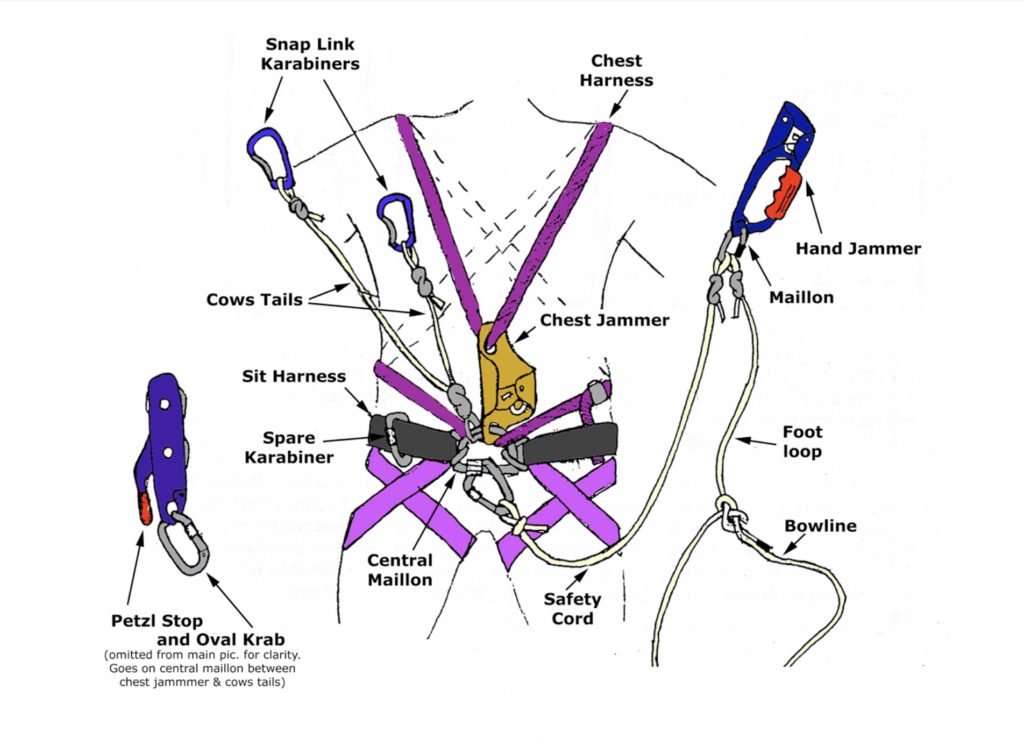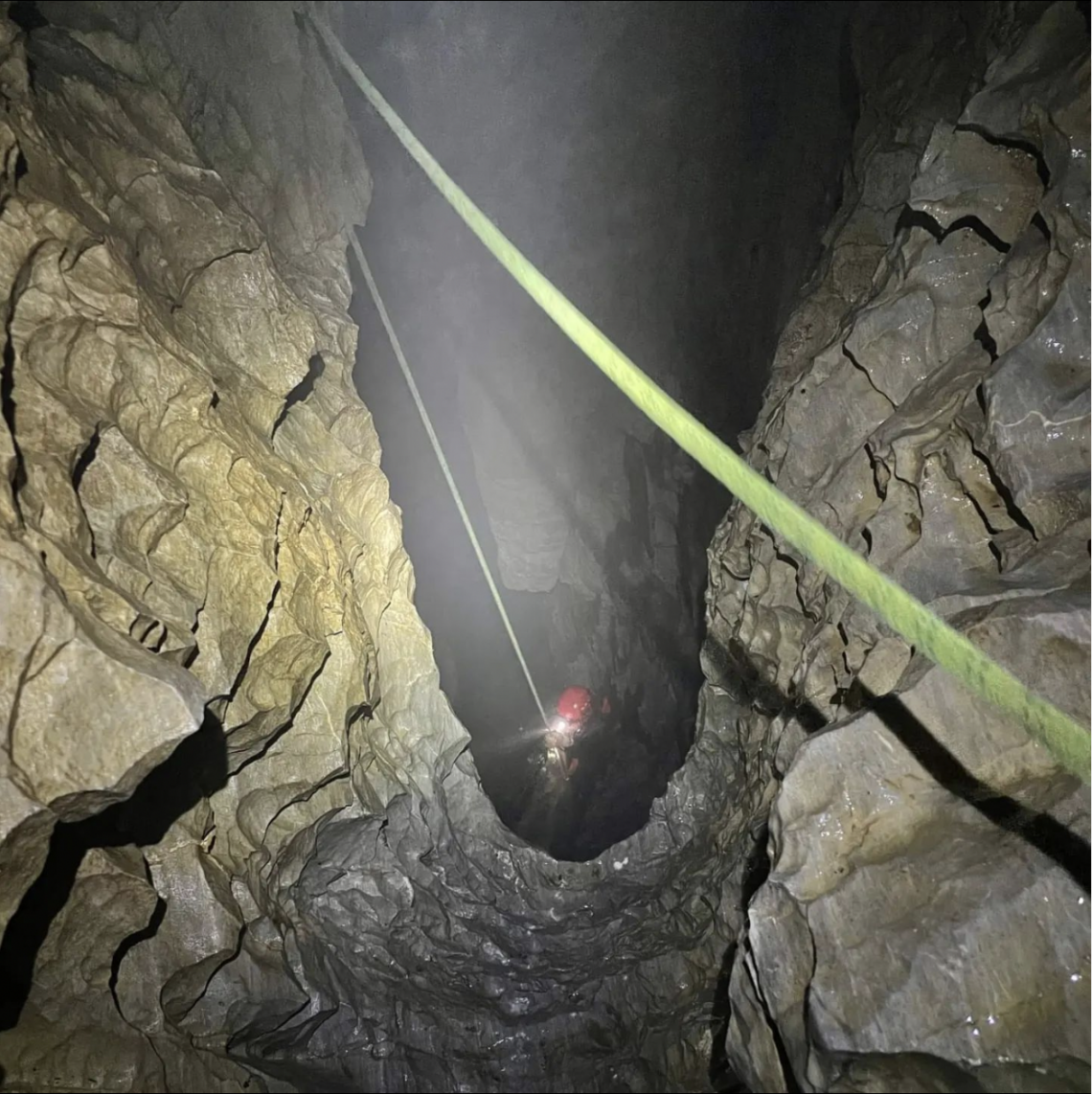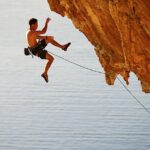Due to reading break, I was back home on Salt Spring Island, meaning that I didn’t get any climbing in until this Friday evening. Instead, I went on hikes and walks with my family, revisited some of my favourite places and got to re-experience the slow island life. On Saturday, I woke up early and went on a caving expedition up island once more with the UVic Caving Club. These cave systems were incredible, and for the first time, I got to use a Single Rope Technique (SRT) system, meaning I descended and ascended into caves that required a rope to get in and out of. There were a few moments where it felt similar to climbing, because I was fully relying on the gear that I was using to ensure that I was safe. But, unlike climbing at Crag X, it was completely dark in the caves so I was fully reliant on my headlamp to see, and I was either ascending out of a cavern, or descending into one, which was quite crazy now that I think about it.
I wanted to look into the differences between the two sets of gear used in climbing and caving, because I think it’s so cool (and a little crazy) that humans have invented gear that allow people to do things such as climb up a rock face or go underground and into a cavern. I will be comparing the entire set up for lead climbing outdoors as it would be a more fair and equal comparison between the two:
Here’s a comparison of gear between the two sports:
Climbing (outdoors):
- Climbing harness
- Climbing shoes
- Chalk
- Helmet
- Rope
- Belay device
- Quickdraws
- Carabiners
- Slings
Caving:
- Cave suit
- Helmet
- Headlamp(s)
- Boots
- Rope
- Caving sitting harness
- Chest harness
- Carabiners (D-ring, locking, snap)
- Short rope to tie two barrel knots and a figure eight
- Hand ascender
- Chest ascender
- Descender
- Foot loop rope
You can see that caving does require a little bit more gear. While I had done ropes training before, it was off of a tree in Cadboro Bay, and not in a cave above a 10 meter drop. Using the SRT system was a bit complicated – especially putting it on – as there are so many bits and pieces to it. I eventually got the hang of it by the end of it, and had an absolute blast. It does make me grateful though that climbing isn’t as gear heavy. I try to think of climbing gear as a safety tool, but not as an assistance up. I’m not as crazy as Alex Honnold (he free solo-ed a 3000ft route), but trusting yourself to get up the wall, and knowing that there is gear there to keep you safe should something go wrong, is what I love so much about climbing!
Caving gear in a nutshell:

Some things to note:
- Hand and chest jammer = hand and chest Ascender
- Central maillon = D-ring carabiner
- Petzl Stop and Oval Krab = Descender
- Cows tail = two ends of the short rope with the two barrel knots at the end and the figure eight attached to your D-ring on your harness.
- Caving and climbing harnesses are very different. Caving harnesses are a lot more heavy duty and comes in two parts, the chest harness and the sitting harness.
(image by Reading University Caving Club)







isaacclements
November 20, 2022 — 3:24 pm
Hi Anju,
This looks so cool! Personally I haven’t done much climbing, but it looks like a lot of fun. It is wild how much gear there is involved with caving. Where up island did you go?